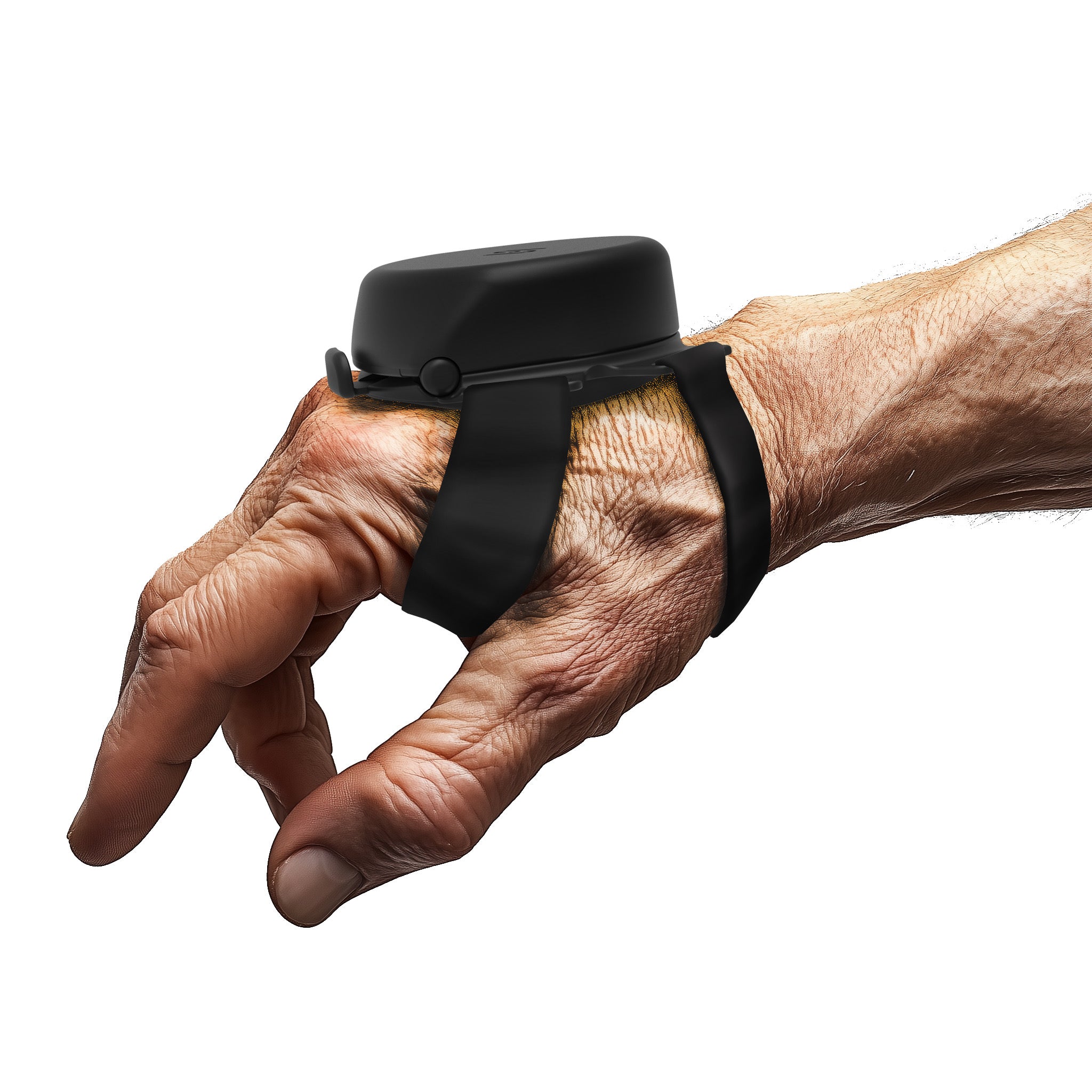Involuntary movement of fingers and hands doesn’t necessarily indicate signs of essential tremors or Parkinson’s, these two conditions are just the most well-known ones. If you’re experiencing flapping hands, that could mean that you’re developing Asterixis. Also known as liver flap or flapping hand tremor, this unusual phenomenon is a clinical sign of underlying medical issues; it is frequently linked to brain difficulties, metabolic diseases, or liver malfunction. Despite not being a distinct disease, Asterixis calls for a thorough examination to determine and treat its underlying cause. Join us to learn more about Asterixis, what causes it, and how to manage and cope with it.
What is Asterixis?
Asterixis is a neurological condition marked by an abrupt, transient, and non-rhythmic loss of muscular tone, which causes a person's limb or limbs to momentarily and uncontrollably flop or jerk. Usually, this phenomenon appears in the hands, particularly when the wrists are stretched. Metabolic problems, especially liver impairment, are frequently linked to Asterixis. Certain conditions like hepatic encephalopathy, in which the liver is unable to sufficiently eliminate toxins from the blood, can result in neurological symptoms like this one. Patients with cirrhosis, advanced liver disease, or other liver-related problems frequently experience it. With that being said, let’s expand on the causes for a better understanding of the condition.
What Are The Causes of Asterixis?
As we previously discussed, underlying medical disorders that impact the central nervous system, especially the brain, are frequently linked to this kind of tremor. Liver impairment, which results in hepatic encephalopathy, is the most frequent cause of Asterixis. Here are a few examples of the key causes of this condition:
-
Liver Disease/Cirrhosis:
Asterixis is often caused by liver illness, specifically cirrhosis. An advanced form of liver scarring, cirrhosis is brought on by a number of liver illnesses and disorders, including alcoholism and chronic hepatitis. The liver's capacity to remove toxins from the blood decreases as it gets damaged and loses its useful tissue. As a result, toxic chemicals may build up in the blood and influence the brain, causing neurological symptoms such as flapping hands.
-
Hepatic Encephalopathy:
The neuropsychiatric syndrome known as hepatic encephalopathy is linked to advanced liver illness. Because of the liver's impaired capacity to detoxify chemicals, poisons like ammonia can enter the brain. Asterixis is just one of the neurological symptoms that can result from these poisons' disruption of normal brain function. Electrolyte abnormalities, infections, and gastrointestinal bleeding are common causes of hepatic encephalopathy.
-
Renal Failure:
Severe renal failure results in the kidneys' inability to remove waste and poisons from the blood. These chemicals can then build up in the body and cause metabolic abnormalities that can impact the neurological system and perhaps end in causing this particular type of tremor.
-
Metabolic Disorders:
Toxic byproducts or deficits in vital nutrients can result from a variety of metabolic problems, including inborn errors of metabolism. The central nervous system may be negatively impacted by these anomalies, leading to neurological symptoms such as Asterixis. Among the metabolic illnesses are disorders related to the metabolism of amino acids, such as maple syrup urine disease, and genetic disorders affecting copper metabolism, such as Wilson's disease.
What Are The Treatment Options for Asterixis?
Addressing the underlying cause or contributing circumstances is the main goal of Asterixis treatment. Since Asterixis is frequently a neurological symptom of a number of illnesses, addressing the underlying cause is essential. The following are some general methods and things to think about when embarking on the treatment journey:
-
Management of Underlying Liver Disease:
A multifaceted strategy is necessary to address liver dysfunction, particularly when it is associated with cirrhosis or other liver disorders. Prescription drugs may be used to treat liver disease symptoms and stop its progression. For example, hepatic encephalopathy can be managed with the use of drugs such as rifaximin or lactulose, while diuretics can be used to lessen fluid accumulation. It is essential to make lifestyle changes, such as giving up alcohol and eating a diet that is friendly to the liver. Liver transplantation might be thought of as the last resort in severe cases.
-
Hepatic Encephalopathy Treatment:
Reducing the blood levels of harmful substances—ammonia in particular—is essential to managing hepatic encephalopathy. One frequently recommended drug that aids in capturing and getting rid of ammonia in the colon is lactulose. Reducing ammonia-producing bacteria in the gut can also be accomplished with antibiotics such as rifaximin. Effective care of hepatic encephalopathy requires the identification and treatment of factors such as gastrointestinal bleeding or infections that caused the condition in the first place.
-
Electrolyte Correction:
Certain electrolytes may need to be administered intravenously in order to correct electrolyte imbalances, particularly those involving sodium and potassium. Moreover, intravenous fluids may be given to restore electrolyte balance in cases of dehydration or kidney failure. Adopting dietary changes, including reducing salt consumption, can help keep electrolyte levels in check.
-
Management of Metabolic Disorders:
Depending on the exact disorder, treatment for metabolic disorders that contribute to Asterixis is highly customized. For instance, chelating drugs, such as penicillamine, may be recommended in the event of Wilson's illness in order to flush the body of excess copper. Depending on the type of metabolic disorder, several targeted interventions such as enzyme replacement therapy and dietary adjustments may be used.
Coping With Asterixis:
Managing the underlying conditions that result in this neurological sign as well as resolving its symptoms and related difficulties are all part of coping with Asterixis. The following are some helpful coping mechanisms that you should try:
-
Follow Medical Advice:
It is essential to follow the recommendations and treatment plans given by your healthcare provider. Treatment plan modifications can be guided by routine laboratory testing, imaging investigations, and medical check-ups, which can assist track the underlying condition's progress.
-
Medication Management:
It's critical to follow prescription instructions if the medicine is recommended to treat the underlying cause or manage symptoms. Be aware of the possible side effects and let your doctor know if you have any questions or suffer any uncomfortable responses.
-
Dietary Modifications:
Following a recommended diet may be helpful in cases where Asterixis is caused by liver malfunction or metabolic problems. For instance, those with hepatic encephalopathy or liver disease may be recommended to restrict their intake of sodium or protein. To develop a nutrition plan that is customized to your individual requirements, speak with a licensed dietitian.
-
Stay Informed:
Learn as much as you can about the underlying disease that causes Asterixis. Being aware of the condition's characteristics, course, and possible consequences will enable you to take an active role in your treatment and make wise choices.
In Conclusion:
As a subtle neurological indicator of underlying health issues, Asterixis serves as a clinical lighthouse. The flapping hand tremors that accompany it highlight the complex interactions that occur between the liver, metabolism, and central nervous system. As a result of continued study, technological developments, and patient-provider collaboration, Asterixis is being better understood and managed, providing promise for improved quality of life for individuals impacted by this unique neurological phenomenon.



